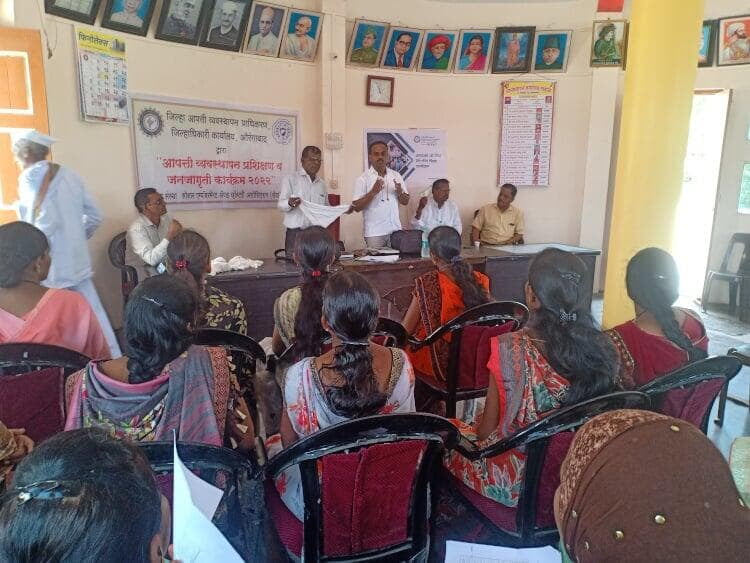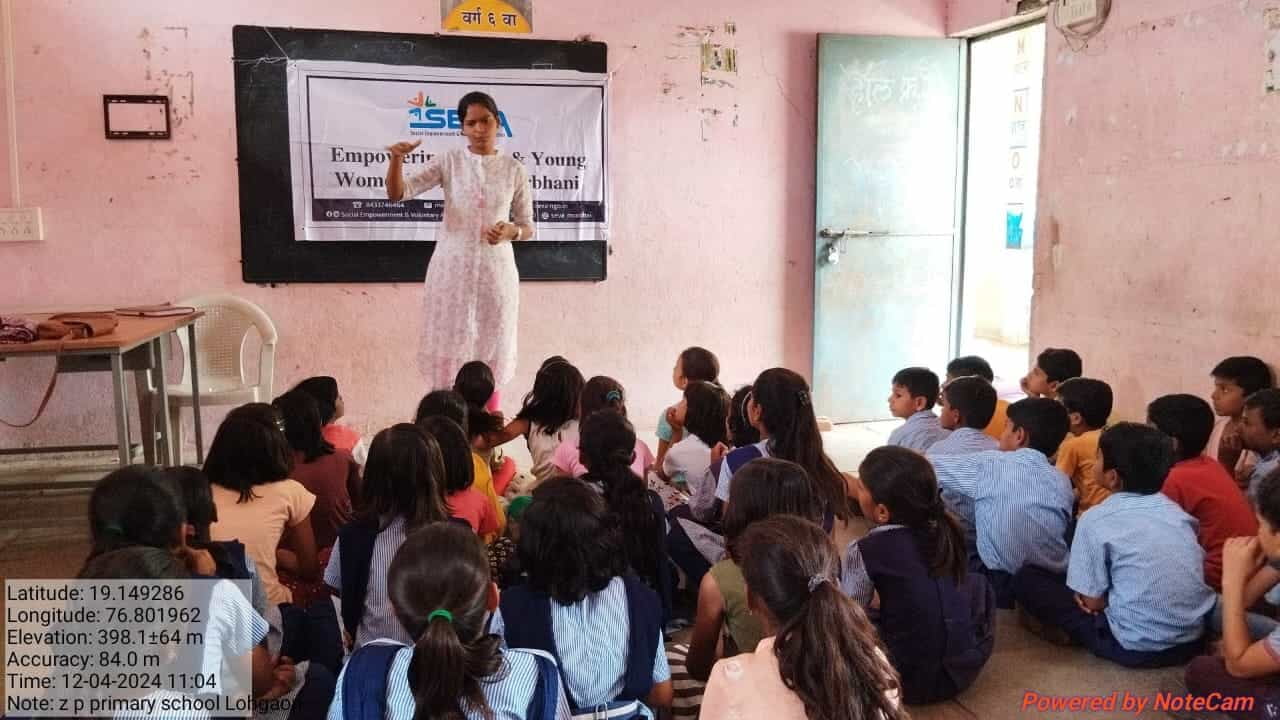Village Health Screening Camps

“Whose periods have started? Whose have not? Who experiences stomach pain?” asked Aradhana Gupta, co-founder of Project Baala, as a wave of raised hands filled the air in response. At the end of the session, Aradhana and Rishita Aggarwal,
Periods, while a natural sign of a healthy female body, are often met with sighs of frustration, and for many, the discomfort of cramping and other painful symptoms. However, on one afternoon in the sunny courtyard of a school in rural Alwar, Rajasthan, the atmosphere surrounding menstruation was entirely different—one of curiosity and excitement.
A sea of students gathered, chatting and giggling, as they surrounded two women from Project Baala, a social enterprise dedicated to demystifying menstruation.
a Project Baala volunteer, distributed reusable sanitary pads to the girls, who cheered in appreciation as they received them.
The initiative was not only about providing practical solutions but also about changing the narrative around menstruation, transforming it from something dreaded to something understood and embraced.
The Awareness and Affordability Gap : In rural parts of India, the opportunity to openly learn about and ask questions regarding menstruation is precious. Myths and taboos around periods run deep, while access to hygienic sanitary options remains limited. According to the National Family Health Survey (2019-21), around 50% of women in India still use cloth during menstruation, which is not considered a hygienic option. Period poverty is a severe issue, with many menstruators from low-income households resorting to homemade solutions due to the unaffordability of commercial sanitary products. This reliance on unsafe alternatives heightens the risk of health complications, including reproductive and urinary tract infections.
Beyond financial barriers, menstruation in India is surrounded by stigmas. Phrases like "impure," "unclean," and instructions like "Do not enter temples" or "Do not wash your hair" are widely repeated. "My mother has told me not to eat sour food during my period," says Khushi, a student from Alwar. "I’m not allowed in the kitchen or to participate in activities." These taboos affect girls' everyday lives and shape how they view their own bodies. Even those with more progressive upbringings are not immune to the social shame attached to periods. "If I have massive cramps, my instinct is to say I have a headache," shares Soumya Dabriwal, co-founder of Project Baala. "There’s so much shame associated with it."
Such ingrained attitudes foster fear and self-disgust, leading to silence around health concerns and diminished self-worth among girls. Project Baala was established to challenge these mindsets and provide sustainable, affordable menstrual hygiene solutions. Soumya explains that while a menstrual pad cannot fix every issue, it can start conversations and shift cultural perspectives. “Baala” (meaning "girls" in Hindi) partners with organizations to fund outreach and distribution drives in schools across India, training volunteers known as "Baala Bosses" to lead workshops on menstruation and health. As of June 2022, Project Baala had conducted over 1,100 workshops across India and distributed 350,000 reusable sanitary pads.
Project Baala is furthering its impact by empowering rural women to sell Baala pads, providing both an income stream and an avenue for spreading awareness about menstrual hygiene. Sita Sharma, the first associate from Alwar, exemplifies the spirit of this initiative. “Menstruation is a woman’s identity. What is there to hide about periods?” she asks, proudly noting that her husband and sons are now comfortable discussing menstruation with her. Sita shares her message with the women in her village, encouraging them to embrace change for themselves and their daughters. "If you believe these pads can improve your life, then take the step toward that change," she says. "Only you can pave the way for your daughters."
Volunteer Campaigns

Volunteer for Village Health Screening Camps
The Covid-19 epidemic severely influences girls’ and women’s capacity to appropriately manage their menstrual hygiene and health.

